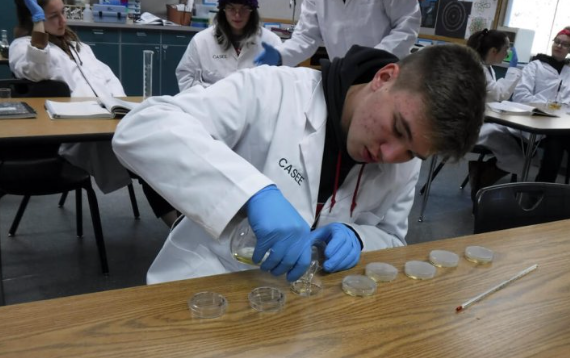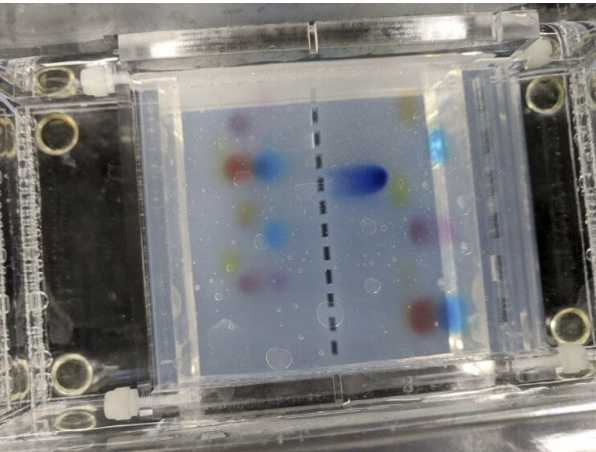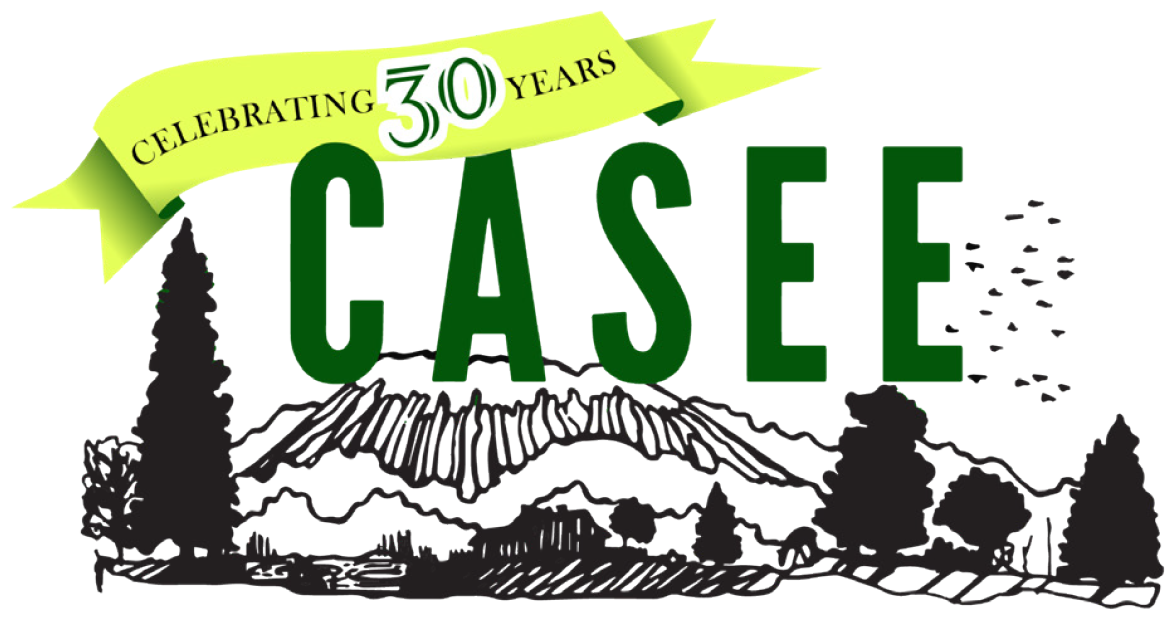Student Work
Biotechnology & Microbiology
Students study the principles and techniques of genetic and bio-engineering that are critical to every aspect of our daily lives.
Much of the first semester is spent learning to prepare solutions and media for microbial growth so the resulting microbial colonies can be analyzed and manipulated. CASEE students are asked to prepare their own media whenever possible so that when students exit the course they can enter the work force with this valuable skill.
DNA electrophoresis is a simple yet essential analysis technique. Once students have learned to prepare their own gels and solutions they investigate the principles of electrophoresis by analyzing the different dyes found in their favorite candies. This knowledge is them applied to more advances concepts including DNA fingerprinting and restriction enzymes.


Gel loaded with dye extracted from popular candies to compare to reference dyes.
Biotech Student Work
Agroecology & Chemistry
Students learn about the molecules and chemical reactions essential to our most important resource, FOOD!
Environmental Science, Forestry, & Wildlife
Students investigate earth systems while learning the techniques foresters and wildlife managers use to manage these precious resources.
Forestry students begin the semester with an overnight trip to Mount St Helens. They spend the first day exploring the unique landscape and the second day conducting an ecologic field study. Back in the classroom the data is analyze to determine how the environment has responded to different disturbance forces created by the 1980 eruption as well as varying land management practices. Over the course of the semester students revisit the project, developing a research question, collecting background research, summarizing and graphing the data related to their question and writing an analysis and conclusion. All this hard work is compiled into a research poster and presented at a student research conference held at WSU in Vancouver. Here are a few examples of the 2018 participants:
Student Forestry Project Work
Natural Resources & Biology
Students learn about Washington state natural resources on our 80 acre campus and investigate the biological principles that sustain them through lab and classroom work.
